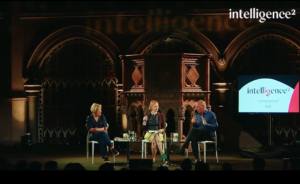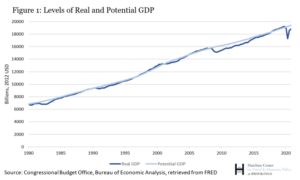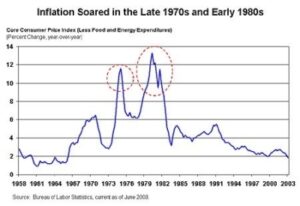This post is part of a series about a discussion (framed as a debate) between Gillian Tett and Yanis Yaroufakis on the subject of saving capitalism. If you found this post via an Internet search, it probably makes sense to start with the first post in the series, the link to which can be found above, and here.
Saving capitalism, greenwashing, and actually “going green”
Gillian responds to Yanis’s story (at the end of the prior post) about Monsanto Bayer wanting to “harvest profits” from the Greek fires by claiming that a setup that would be very profitable to Monsanto Bayer, and ecologically devastating to Greece, is in fact green.
She states she understands that corporations do “greenwash” things in pursuit of profits, and she states that as she believes we can’t trust governments alone to turn us green, and we need the checks and balances that come with a competitive market.
Gillian stated that back in the 1970s when Milton Friedman developed his vision of shareholder capitalism (which she does not agree with) there were two things that were very different from today:
- People thought they could outsource the difficult decisions, the social stuff, to governments, so companies just worried about their balance sheets.
- There was no radical transparency, and most people did not know what was happening inside companies.
Today, people do not trust the government to get stuff done, and almost everyone (at least in the industrial world) has access to enormous amounts of data, such that many aspects of corporate life are open to radical transparency.
And that radical transparency is precisely why Yanis knew what Monsanto Bayer was trying to do relative to winning those contracts to enable them to harvest biomass in the aftermath of the fires in Greece.
She proposes that it is a good thing that the post-fire response includes more than just the Greek government, it is a good thing that we are able to know what companies are proposing, and it is a good thing that companies are proposing stuff, even if they are motivated solely by profits, and this is true even if some of the things these for-profit companies propose are not good.
She concludes this speech with a point I think is valid, which is that investors are starting to hold corporations accountable for environmental damage and starting to include “greenness” as part of their investment strategies.
Yanis responds that he is not a socialist who loves the state. That quite the opposite, he loathes the state, and one of his big worries is that the state and the multinationals are in cahoots, that they’re working together.
He wants local people to be able to take action without being taken over by either Monsanto Bayer or the state.
He claims the radical transparency of corporations Gillian talks of is an illusion, and we need a system whereby local people have sufficient capital and other resources to take action without being under the thumb of either the state or the multinational corporations.
He further states the information people see on TV about what’s going on relative to the response to the fires is not accurate, does not tell what is really going on. And the reason for this is that they’re owned by the same corporate interests who want to profit from the harvesting of biomass.
Gillian then claims that not everyone gets their news from newspapers and corporate news sources, which Yanis disputes claiming that internet sites that dominate the internet are also part of the corporate-owned media.
Ann then asks Yanis about whether developing nations (India, China, etc) can be persuaded that they need to replace their economic model.
His response is he has no doubt that the people in these nations do not want to play catch up in terms of more cement, more environmental destructions, more blocks of flats, destroying their villages.
He’s sure these people want to feel empowered.
He states the difficulties the people in those nations have the same issues that people in developed nations have, which is to move away from Thatcher’s dogma that there is no alternative to capitalism.



